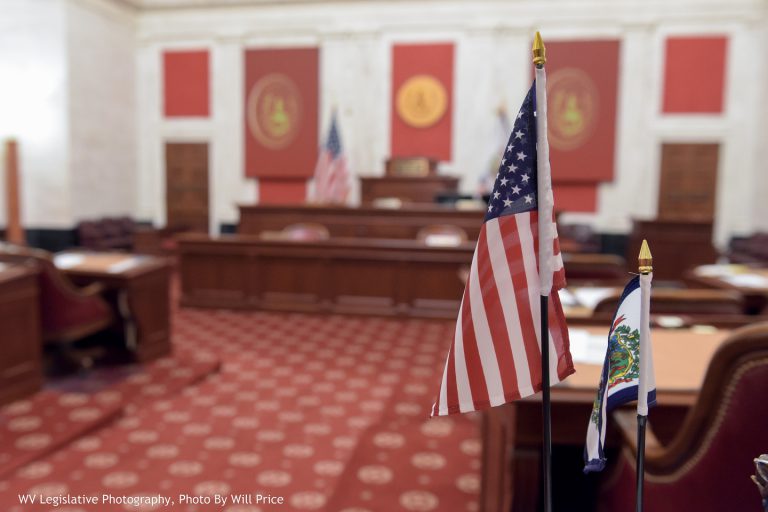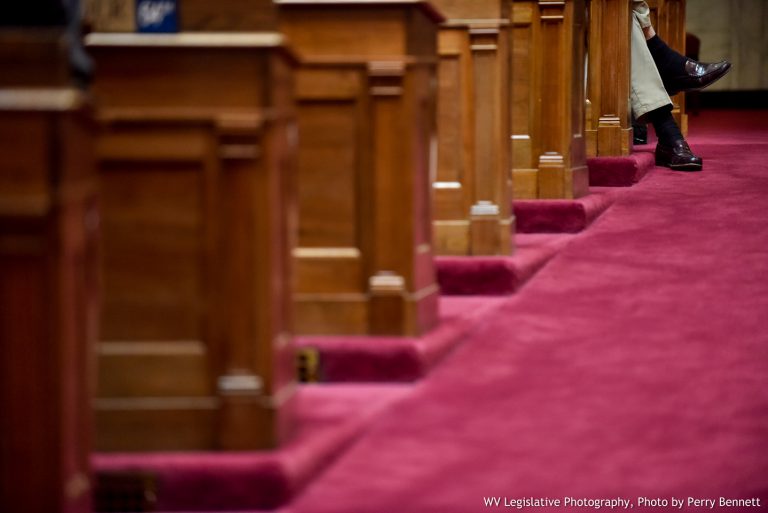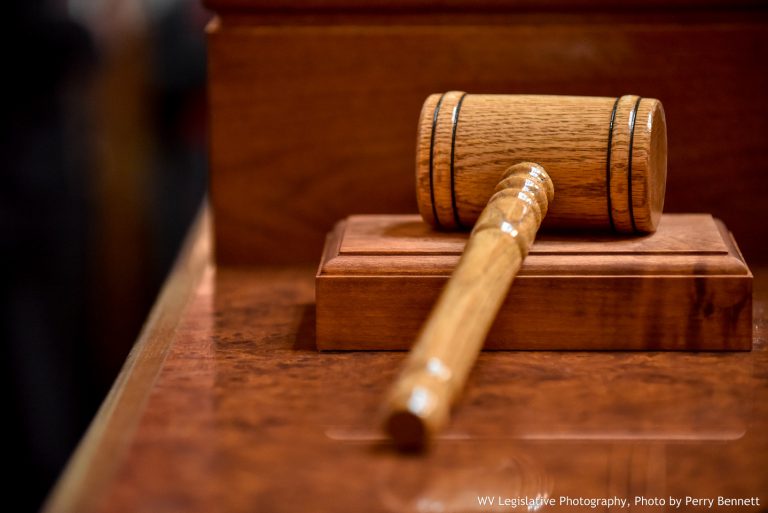As of 4 p.m., Wednesday, February 27, 2008, the 50th day of the 2008 Regular Session, 787 bills have been introduced in the Senate. Of those, 172 have passed and been sent to the House for consideration. These include:
Senate Bill 60 would include the threatened use, not just the use, of a firearm or other deadly weapon for a person to be found guilty of first-degree robbery.
Senate Bill 65 would establish a school uniform incentive plan pilot program that would provide $10,000 to each of the first 10 public elementary schools that apply and meet the criteria by implementing school uniform policies. Allowed uses for the money include improving school safety, renovating the playgrounds and purchasing school equipment.
Senate Bill 194 would establish that by state colleges and universities must provide alternative instructional materials such as material in Braille, large print digital text or audio for blind, visually impaired or dyslexic students. A fine of up to $250 would be imposed for a violation.
Senate Bill 265 would provide a way for assessing the value of all aircraft owned or leased by commercial airlines, charter or private carriers and private companies or firms for property tax purposes effective July 1, 2009. The value of the special aircraft property would be determined by its salvage value. The county assessor in the county where the item is located would determine whether the item is special aircraft property and, if it is, would notify the Tax Commissioner and provide appropriate information.
Senate Bill 286 would provide personal immunity from civil liability for adult protective services workers and child protective service workers for acts, errors or omissions that occurred during the course of their employment and official duties. This bill would not protect those workers from liabilities caused by intentional misconduct.
Senate Bill 287 would establish research endowment programs at Marshall University and West Virginia University to promote research and economic development. These programs would be funded by eligible private donations of at least $50,000, and would be matched by the state from the newly established West Virginia Research Trust Fund.
Senate Bill 462 would raise the age of consent for refusal of mental health treatment from 12 to 18 years of age.
Senate Bill 465 would eliminate the business franchise tax effective January 1, 2013.
Senate Bill 493 would grant emergency powers to the Secretary of State to implement a method to ensure all eligible voters have the opportunity to cast a ballot in case of a natural disaster, terrorist attack or other emergency.
Senate Bill 514 would allow uniformed service members to submit an absentee ballot via e-mail. Ballots received by e-mail would be processed the same as faxes under current law.
Senate Bill 556 would require prior written authorization from private property owners for the towing of motor vehicles without the owner’s consent. Legal repossessions are exempt. This bill would also require criminal background checks for drivers of tow vehicles.
Senate Bill 565 would reduce the required period for notice of increased assessed valuation of real property from 15 days to 10 days prior to the first meeting in February at which the county commission meets as the board of equalization and review. This bill would also provide that the increase in the assessed valuation must be at least $1,000 before the notice is required to be sent.
Senate Bill 567 would prohibit all-terrain vehicles (ATVs) on all paved roads in West Virginia. Penalties for doing so would result in a misdemeanor and a fine of up to $100. An ATV would be able to move from one trail or field to another via a paved road if the distance traveled on the paved road does not exceed 10 miles and the ATV is operated on the shoulder or on the far right of the paved road if a shoulder does not exist. This bill would allow counties to regulate ATVs by permitting or prohibiting them on any paved or unpaved road in the county by notifying the Division of Motor Vehicles and the Governor’s Highway Safety Program. This bill would become effective July 1, 2008.
Senate Bill 590 would extend protections that are currently afforded to public service personnel to health care workers and protective services workers. These protections include enhanced criminal penalties for crimes committed against these workers. A health care worker is any nurse, nurse practitioner, physician, physician assistant or technician at health care facilities such as a hospital or physician’s office. A protective services worker means a Department of Health and Human Resources employee that is employed, or contracted as a child or adult protective services worker.
Senate Bill 628 would allow persons involved in motor vehicle accidents to receive pertinent information such as the name and address of each driver involved in the accident; location, time and date of the accident; and insurance information for each driver involved in the accident at no charge and in a timely manner so they are able to file a timely insurance claim.
Senate Bill 653 would permit the sales of life, accident or sickness insurance over the Internet by exempting electronic insurance applications from any face-to-face transaction requirements.
Senate Bill 722 would require that the state Board of Pharmacy have regulatory power over free and reduced-cost health clinics. The bill would also require those clinics to have a pharmacist in charge to supervise the dispensing of prescription drugs. This bill specifies that the pharmacist in charge could be a volunteer pharmacist.
Senate Bill 747 would create a summer internship program for PROMISE scholars. This internship program would require each PROMISE scholar to register at a Workforce West Virginia Center beginning July 1, 2008. The Governor’s Office would recruit businesses, government and nonprofit organizations to participate in the program, which would provide paid summer internships for PROMISE scholars.
Senate Bill 770 would reduce landfill solid waste assessment fees from $1.75 to $1.30 per ton or fraction of a ton for solid waste deposited in landfills that receive more than 570,000 tons of waste during a consecutive three-month period.
Senate Bill 775 would designate West Virginia’s official state parks and forests in the State Code and clarify that statutory authorization is required to close, change the name or designated use of a state park or forest.






 Myth: Lawmakers only work 60 days a year
Myth: Lawmakers only work 60 days a year